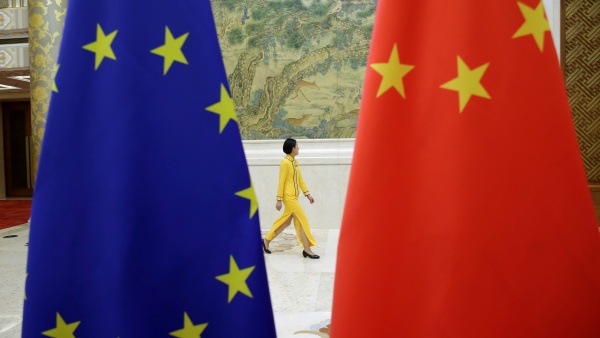
In a January report, BUSINESSEUROPE, a leading business organization, called on the European Union to rebalance its relationship with China in order to address systemic challenges arising from its state-led economy that are leading to market distortions within China, the EU and third-country markets. The business group is urging the EU to reconsider its approach to China because its efforts “have often not yielded the desired results” and numerous investment and trade barriers remain. This post focuses on the challenges and remedies in the procurement sector.
BUSINESSEUROPE’s report, The EU and China: Addressing the Systemic Challenge, A comprehensive EU strategy to rebalance the relationship with China, laid out challenges posed by China’s state capitalism that are harming European businesses: “China’s state-led system includes direct government control over major parts of its economy including key industries, financing institutions, state-owned enterprises, and softer influence through party cells and the corporate social credit system (CSCS) that will apply to all enterprises. This unique and extensive system of state control and coordination through top-down economic planning increasingly blurs the boundaries between the public and private sector and has given rise to “China Inc.” – a structure in which the state dominates all aspects of the economy.”
This state-led system produces discrimination and market distortions that include a disparity in market access between Chinese and foreign firms. These include a closed government procurement market in which EU firms are often prohibited from bidding while the EU’s procurement market is open to Chinese suppliers who are able to bid on European contracts.
The report points to numerous barriers that exclude European bidders from the Chinese procurement market or limit their participation. One set of barriers arises from China’s procurement framework, which is governed by two main laws: the Government Procurement Law (GPL) and the Tendering and Bidding Law (TBL). They represent two parallel procurement systems that are not consistent and often cause confusion.
The GPL’s “buy Chinese” provision prescribes the procurement of domestic goods, construction and services. Moreover, China has not provided a definition of a domestic good. As a consequence, it is unclear whether goods and services produced locally by foreign-invested enterprises (FIEs) are considered “domestic.”
The TBL also poses barriers. In order to participate in a procurement opportunity under the TBL, FIEs are often required to obtain a license. That law does not explicitly require preferential treatment for domestic companies, but regional regulations that fall under its scope explicitly exclude foreign bidders. As an example, the report cites Tianjin Municipality's regulations that provide in “procurement where financial funds are used, products with indigenous patents shall be considered first.”
European businesses cite other barriers, including a non-transparent procurement system, unpredictable enforcement of regulations and lack of clarity in selection and award criteria. The report points out that SOEs conduct most of China’s procurement. [The WTO Secretariat made the same observation in China’s 2018 trade policy review.]
In addition to barriers in the Chinese procurement market, the report cites distortions caused by SOEs in the EU market. For example, Chinese companies’ receipt of subsidized funding, cheaper inputs and “preferential backing from the Chinese state” enable them to submit bids below market prices in EU procurement.
While the business organization criticizes China’s failure to deliver its long-promised accession to the WTO Government Procurement Agreement (GPA), it stresses that more important than a timely accession is the need to ensure “a maximum level of ambition” and strong enforcement provisions “should China’s accession not deliver in practice.” European businesses want China, in its GPA accession, to eliminate the policies and practices that lead to the preferential treatment of domestic suppliers. The EU business community also wants China to cover state-owned contracting authorities such as China Railways, which are major customers for European industry. [China’s latest offer added China Railways to its list of covered entities.]
As part of its remedies, BUSINESSEUROPE urges the EU to modify its proposed International Procurement Instrument (IPI), which would impose price penalties on countries that do not open their procurement to the EU. While it supports the IPI’s objective of encouraging third countries such as China to open up their markets to EU suppliers, it pointed to needed revisions in the current version of the IPI.
BUSINESSEUROPE regards the IPI's proposed price adjustment mechanism as “excessively complex," and creating uncertainties for EU companies and imposing high burdens on contracting authorities. It also questions whether the proposed price penalty would be effective with SOEs; as a consequence, it recommends excluding SOEs from a country that does not commit to opening its procurement to the EU and that maintains discriminatory policies and practices against EU companies.
The 162-page report also recommends EU actions to counter China's practices in other areas, including intellectual property and forced technology transfer, standardization, e-commerce, and energy and climate.
Jean Heilman Grier
January 22, 2020
Related Posts
China's New GPA Offer: Enhances Accession Prospects
EU: New Push for Measure to Open Procurement
EU: Penalizing Closed Procurement Markets
Do Open Markets Decrease China’s Incentive to Join GPA?
China's 2018 WTO Trade Policy Review: Procurement Highlights

